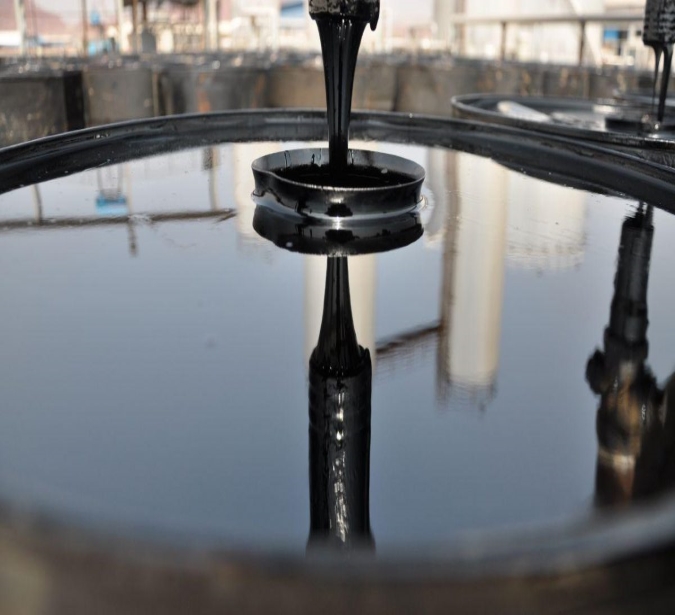PETROCHEMICAL PRODUCTS

Zeochem B.V. Petrochemical Group is an organization, importing, exporting and trading petrochemicals, chemicals and petroleum derivatives, headquartered in Istanbul with having offices in Georgia. Zeochem B.V. provides variety of raw materials as dry and bulk for different sectors such as; paint, resin, construction chemicals, detergent, adhesive, rubber, cable, Tyre, plastic, packing, nano technological lubricants, ink, glass, candle.
Zeochem B.V. is exclusive
distributor of some Refinery
that located in middle east.
Beside, working with global
leading companies such as
Eastman, Petrobras, Rompetrol,
Lotte, Lukoil, Gazprom.
With
the ability of innovative
thinking and offering
alternative solutions, the
company has entered to Asian
market.
With it’s just
in time delivery policy,
qualified sales and
after-sales service, broad
product line and stock
capacity Zeochem B.V. aims to take a
leading place in global
petroleum and petrochemical
market.
We supplying petroleum products such as Base Oils (I-8A, SN 150, SN 180, SN 350, SN 500) and all grade of Bitumen like Penetration Grade Bitumen and Polymer Modified Bitumen.
OUR POLYMERS
Polymers are substances containing a large
number of smaller, identical molecules
(called monomers) linked together. These
substances often form into a chain-like
structure. Polymers have extremely high
molecular weights and the chains may
differ from one another in their molecular
weights.
Today, the polymer industry
has grown to be larger than the aluminum,
copper and steel industries combined.
Polymers
already have a wide range of applications
that far exceeds that of any other class
of material available. Current
applications extend from adhesives,
coatings, foams, and packaging materials
to textile and industrial fibers,
composites, electronic devices, biomedical
devices, optical devices, and precursors
for many newly developed high-tech
ceramics.
|
olyethylene (PE)
High Density Polyethylene
(HDPE) Polypropylene (PP) |
Polyethylene Terephthalate(PET)
PET(Bottle Grade) Purified Terephthalic Acid ( PTA) |
|
Polystyrene (PS)
General Purpose Polystyrene
(GPPS) Expandable Polystyrene (EPS) |
Styrene Butadiene Rubber(SBR) Poly Butadiene Rubber(PBR) Poly vinyle Chloride (PVC) |
|
Acrylonitryle Butadiene
Styrene(ABS) |
Polycarbonate |
BITUMEN?
Bitumen is a mixture of Organic Liquids that are highly Viscous, Black, Sticky, Entirely Soluble in Carbon Disulfide, and composed primarily of highly condensed Polycyclic Aromatic Hydrocarbons.
Naturally occurring or crude bitumen is a sticky, tar-like form of petroleum which is so thick and heavy that it must be heated or diluted before it will flow. At room temperature, it is much like cold molasses. Refined Bitumen is the residual (bottom) fraction obtained by fractional distillation of crude oil. It is the heaviest fraction and the one with the highest boiling point, boiling at 525 °C (977 °F).
In British English, the word ‘Asphalt’ refers to a mixture of mineral aggregate and bitumen (or tarmac in common parlance). The word ‘Tar’ refers to the black viscous material obtained from the destructive distillation of coal and is chemically distinct from bitumen.

In American English, Bitumen is referred to as ‘Asphalt’ or ‘Asphalt cement’ in engineering jargon. In Australian English, Bitumen is sometimes used as the generic term for road surfaces. In Canadian English, the word bitumen is used to refer to the vast Canadian deposits of extremely heavy crude oil, while asphalt is used for the oil refinery product used to pave roads and manufacture roof shingles. Diluted Bitumen (diluted with Naphtha to make it flow in pipelines) is known as dilbit in the Canadian Petroleum industry, while bitumen upgraded to synthetic crude oil is known as syn crude and syn crude blended with bitumen as syn bit. Most bitumen contain sulfur and several heavy metals such as Nickel, Vanadium, Lead, Chromium, Mercury and also Arsenic, Selenium, and other Toxic Elements. Bitumen can provide good preservation of plants and animal fossils.
Bitumen 40/50 Specifications:
- Density 25 °C (kg/m3):1.010/1.060 at ASTM D70
- Penetration 25 °C(mm/10>):40-50 at ASTM D5
- Softening Point (°C): 52-60 at ASTM D36
- Ductility, 25°C (cm/s): >100 at ASTM D11
- Loss on Healing (WT%):0.2 max at ASTM D6
- Drop-in Penetration After healing (%):20 Max at ASTMD6 and ASTM D5
- Flash Point (°C): >250(°C) at ASTM D92
- Solubility in sc2 (WT%): >99.5 at ASTM D4
- Spot Test: Negative at *A.A.S.H.O.T.102
Bitumen 60/70 Specifications:
- Penetration at 25 °C, 100g, 5s & 1/10mm (°C): Min:60 – Max:70 at ASTMD5
- Softening Point by ring and ball method(°C): Min:48 at ASTMD36
- Ductility at 25 °(Cm): Min:100 at ASTM D113
- Flash point(°C): Min:250 at ASTM D92
- Viscosity Kinematic at 135°C (CTS): Min:350 at ASTM D2170
- Solubility in T.C.E (% mass): Min:99.5 at ASTM D2042
- Loss of Heating (% mass): Max:1
- Penetration of residue (%of original): Min:52
- Ductility of residue 25°C, 100g, 5s (%): Min:50
Bitumen Cutback MC30 Specifications:
- Kinematic Viscosity at 60°C, est.: 30/60 at ASTM D2170
- Flash Point (tag open-cup), °C: 38.0 at ASTM D1310
- To 360°C: -/15
- To 190°C: 20/60
- To 225°C: 50/90
- To 260°C: 80/100 at ASTM D402
- Test on residue from distillation: 50/- at ASTM D113
- Ductility 3 at 25°C, cm: 120/250 at STM D402/ASTMD5
- Solubility in trichloroethylene, percent mass: >99 at ASTM D402/ASTMD113
- water, percent volume: 1.000/1.050 at ASTM D402/ASTMD2024
- water, percent volume: max 90-110 above the soft at ASTMD95
Bitumen 80/100 Specification:
- Penetration, 25°C, 100gr, 5s & 1/10mm(°C): Min:80-Max: 100 at ASTM D5
- Ductility, 25°C, 5 cm/min(cm)): >100 at ASTM D113
- Softening Point (°C): 42-52/45-52 at ASTM D36
- Loss on Heating (163° C-5h) Wt. (%): 0.5 Max at ASTM D6
- Drop-in Penetration After Heating (%): 20 Max at ASTM D6805
- Loss of Weight (%): <0.8 at ASTM D1754
- After Thin film retained penetration (%): >50 at ASTM D5
- Oven Test Ductility 25°C: >100 at ASTM D113
- (163°c,5H) 15°C: >100 at ASTM D113
- Flash Point (°C): >225°C at ASTM D92
- Bitumen Content (WT %): >99.9 at ASTM D4
- Solubility in T.C.E (WT %): >99 at ASTM D2042
- Density, 25°C (kg/m2): 1.000/1.050 at ASTM D71 or D3289
- Temperature (°C): max 90-110 above the soft
BITUMEN PACKING TYPE
- DRUMS: Drummed Bitumen has been the most common type of packaging. Qualities of the drums have been improving during these years. We always use New Steel Drums for packing. Drums vary in terms of net weight capacity, height and body thickness. The most common and standard drums have the body thickness of 0.6 mm. Height of the drums are 98 CMS for standard drums and 86 CM for small drums (180 KG and 200 KG drums), however we have the required tools to adjust the height of the drums, based on the customer’s choice
- BULK : Our company is involved in the export of high quality road bitumen in bulk via bulk vessels to neighboring countries. After production, Bulk bitumen is initially stored in storage tanks near sea port and loaded onto Bulk bitumen vessels.A small vessel with the capacity 3,000 metric tons can be loaded within 1- 2 days and delivered to near ports within 7 to 14 days. Such small bulk bitumen ships of this capacity are designed for short distance travel. For longer distances the availability of bulk bitumen vessels must be asserted and they must be larger in size to withstand the voyage and also make it cost effective to use this mean as a transportation method. Bulk bitumen’s price is an average of 40.00 USD per metric tons less than that of drummed bitumen. The shipping cost of bulk bitumen is generally higher than bitumen shipped in containers. For example, the cost of containers to one port may cost 10.00 USD/MT while shipping the goods via a bulk vessel may cost well over 50.00 USD/MT to the same destination.
